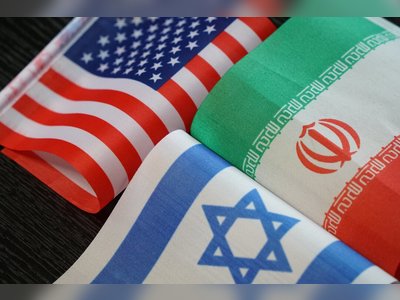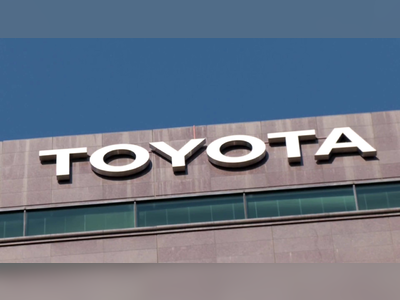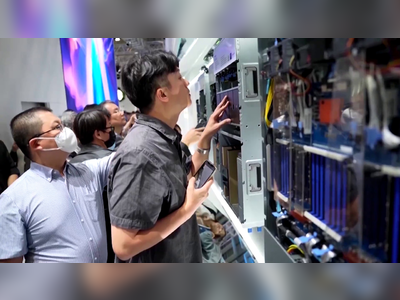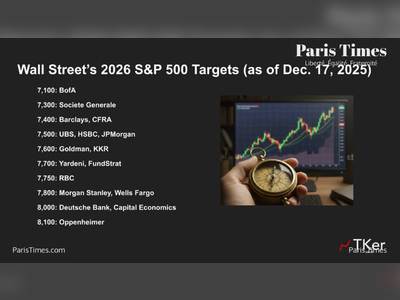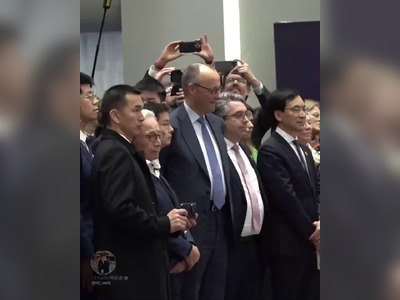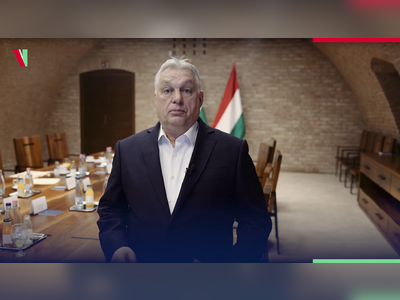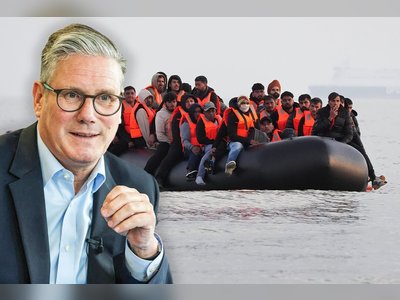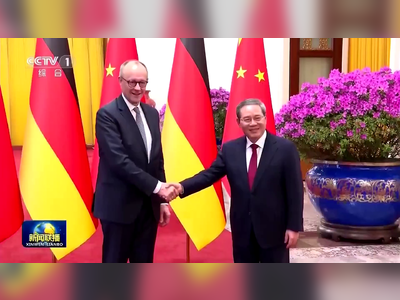Car Parts Leader Warns Europe Faces Heavy Job Losses in ‘Darwinian’ Auto Shake-Out
Valeo chief says Europe risks losing tens of thousands of auto-industry jobs as Chinese competition, weak demand and green-transition pressures intensify
Europe’s automotive supply chain is entering what senior industry leaders describe as a “Darwinian transformation”, with growing evidence that many car-parts manufacturers will struggle to survive the next phase of global competition and technological upheaval.
Christophe Périllat, chief executive of the French components group Valeo, has cautioned that most future job losses are likely to fall in Europe unless policymakers act decisively to stabilise the region’s industrial base.
He pointed to weakening demand, the costly shift to electric vehicles and the rapid advance of lower-cost Chinese competitors as forces reshaping the sector at unprecedented speed.
Industry figures already illustrate the strain.
Job losses across European car-parts suppliers more than doubled in twenty twenty-four, with over thirty thousand positions eliminated as slowing vehicle sales and shrinking margins forced companies to close factories, reduce investment and, in some cases, file for insolvency.
Since twenty twenty, more than fifty-eight thousand supplier jobs have vanished across the continent.
Valeo’s own restructuring reflects the scale of the challenge.
Between twenty twenty-two and twenty twenty-five, the company closed thirty-eight sites worldwide while opening only four new facilities.
Executives say no meaningful revenue growth is expected before twenty twenty-seven, and forecast restructuring costs of roughly one hundred million euros annually from twenty twenty-six.
According to Périllat, the European market has entered a survival-of-the-fittest phase in which traditional combustion-engine roles are disappearing far faster than new jobs in electric-vehicle technologies can replace them.
In twenty twenty-four alone, the net number of positions tied to battery-electric components declined, as nearly four thousand seven hundred roles were lost across the region.
A series of structural pressures compound the challenge: supply-chain disruptions following the pandemic, energy-price surges linked to the war in Ukraine, inflation-related declines in household purchasing power and a strengthening global presence of Chinese automakers offering aggressively priced products.
Meanwhile, new European Union emissions rules taking effect in twenty twenty-five and a planned twenty thirty-five phase-out of combustion-engine vehicle sales are raising costs further for suppliers.
Industry leaders have urged Brussels to adjust the regulatory framework to prevent long-term erosion of Europe’s industrial capabilities.
Proposals include revisiting the twenty thirty-five deadline, establishing stronger local-content requirements and tightening measures against under-priced imports.
Despite the pressures, some executives believe consolidation could ultimately yield stronger and more resilient European suppliers.
Companies that invest early in electronics, software and driver-assistance systems—and align closely with global automaker platforms—may emerge better positioned once the transition stabilises.
Valeo is already shifting investment toward high-growth regions including the United States, India and China while consolidating operations in Europe.
The company is prioritising lighting systems, thermal technologies, sensors and driver-assistance hardware—fields expected to remain central to future electric and automated vehicles.
Industry forecasts suggest that up to three hundred and fifty thousand European supplier jobs could be at risk by twenty thirty if current trends persist.
Whether that projection becomes reality will depend on global trade dynamics, policy decisions in Brussels and corporate strategies across the sector.
For many suppliers, survival will depend on adapting quickly in what increasingly resembles a Darwinian contest.
Christophe Périllat, chief executive of the French components group Valeo, has cautioned that most future job losses are likely to fall in Europe unless policymakers act decisively to stabilise the region’s industrial base.
He pointed to weakening demand, the costly shift to electric vehicles and the rapid advance of lower-cost Chinese competitors as forces reshaping the sector at unprecedented speed.
Industry figures already illustrate the strain.
Job losses across European car-parts suppliers more than doubled in twenty twenty-four, with over thirty thousand positions eliminated as slowing vehicle sales and shrinking margins forced companies to close factories, reduce investment and, in some cases, file for insolvency.
Since twenty twenty, more than fifty-eight thousand supplier jobs have vanished across the continent.
Valeo’s own restructuring reflects the scale of the challenge.
Between twenty twenty-two and twenty twenty-five, the company closed thirty-eight sites worldwide while opening only four new facilities.
Executives say no meaningful revenue growth is expected before twenty twenty-seven, and forecast restructuring costs of roughly one hundred million euros annually from twenty twenty-six.
According to Périllat, the European market has entered a survival-of-the-fittest phase in which traditional combustion-engine roles are disappearing far faster than new jobs in electric-vehicle technologies can replace them.
In twenty twenty-four alone, the net number of positions tied to battery-electric components declined, as nearly four thousand seven hundred roles were lost across the region.
A series of structural pressures compound the challenge: supply-chain disruptions following the pandemic, energy-price surges linked to the war in Ukraine, inflation-related declines in household purchasing power and a strengthening global presence of Chinese automakers offering aggressively priced products.
Meanwhile, new European Union emissions rules taking effect in twenty twenty-five and a planned twenty thirty-five phase-out of combustion-engine vehicle sales are raising costs further for suppliers.
Industry leaders have urged Brussels to adjust the regulatory framework to prevent long-term erosion of Europe’s industrial capabilities.
Proposals include revisiting the twenty thirty-five deadline, establishing stronger local-content requirements and tightening measures against under-priced imports.
Despite the pressures, some executives believe consolidation could ultimately yield stronger and more resilient European suppliers.
Companies that invest early in electronics, software and driver-assistance systems—and align closely with global automaker platforms—may emerge better positioned once the transition stabilises.
Valeo is already shifting investment toward high-growth regions including the United States, India and China while consolidating operations in Europe.
The company is prioritising lighting systems, thermal technologies, sensors and driver-assistance hardware—fields expected to remain central to future electric and automated vehicles.
Industry forecasts suggest that up to three hundred and fifty thousand European supplier jobs could be at risk by twenty thirty if current trends persist.
Whether that projection becomes reality will depend on global trade dynamics, policy decisions in Brussels and corporate strategies across the sector.
For many suppliers, survival will depend on adapting quickly in what increasingly resembles a Darwinian contest.
